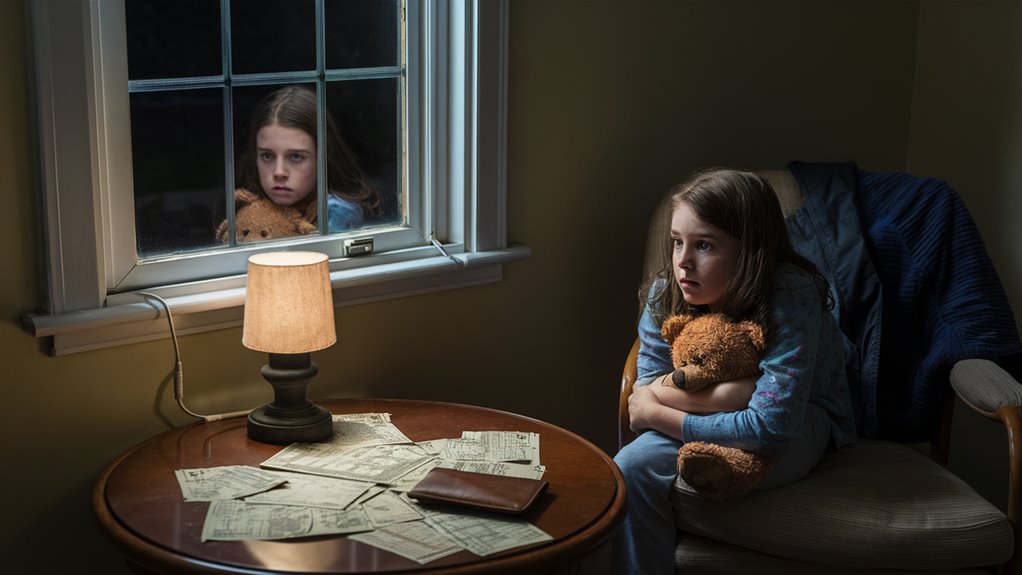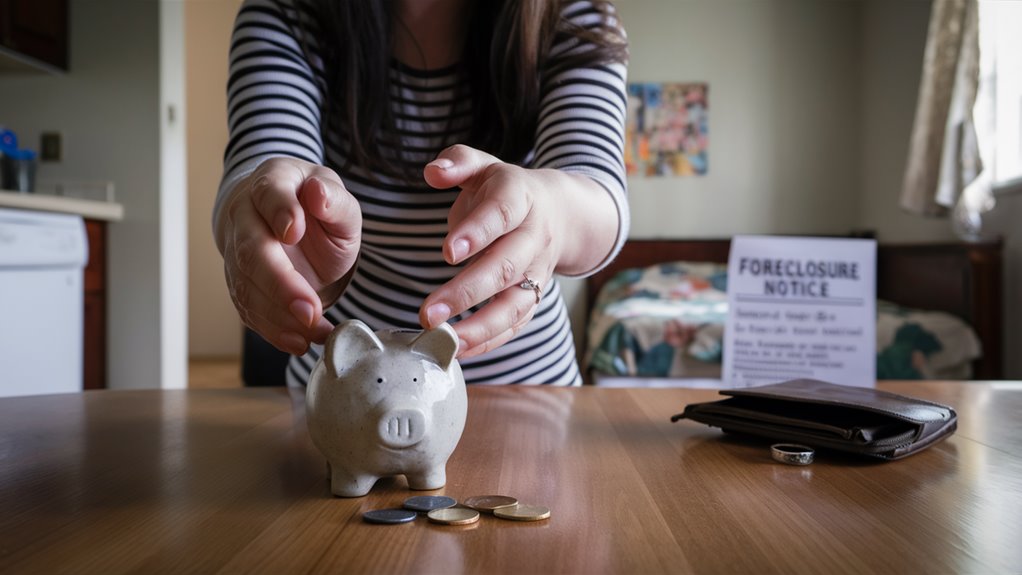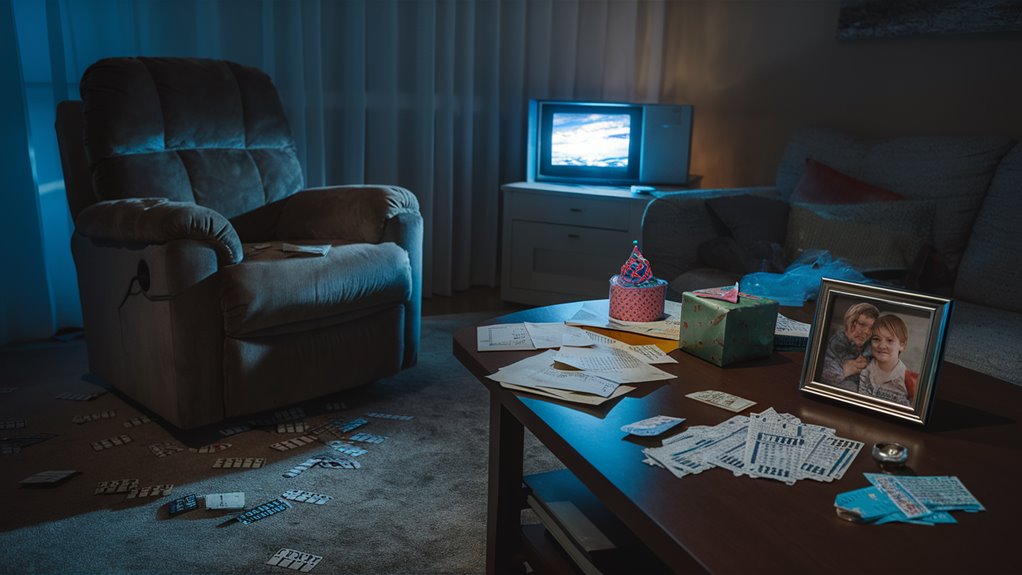The Effects of Gambling Addiction on Families and Friends

The bad impacts of gambling addiction go past just losing money. These issues deeply hurt family ties and social circles. Studies show that 76% of affected families deal with major harm to relationships due to lies and lost trust.
How It Hurts Family Members
Kids of frequent gamblers suffer a lot, often feeling anxious, sad, and always on alert, which might go on as they grow up. These emotional scars can harm family life for a long time.
Money Losses and Long-term Harm
Problem gambling uses up savings and leads to dangerous cycles of big debt. This includes:
- Hurt credit scores
- Common bankruptcy
- Loss of family assets
- Financial PTSD in family members
- Risk to retirement savings The Rise of Online Poker Bots and Their Impact on the Game
Other Harm and Enabling
Family members often suffer other harm as they deal with enabling acts. This makes a mess of:
- Dependency patterns
- Trust issues
- Feeling unstable
- Constant stress
- Worse mental health
Knowing these complex ties helps in breaking the bad cycle and finding good recovery ways for both the addicted person and their support group.
Money Challenges for Family Members
How Problem Gambling Affects Families’ Money
Immediate Money Problems
Problem gambling shakes up family money safety, using up shared savings, retirement money, and home resources.
Partners and kids feel the worst when hard-core gamblers spend money meant for important bills like house payments, power, and food on betting.
Debt Cycles and Emergency Money
The money impact is more than just lost cash, creating tough debt patterns.
Family often take costly loans, credit card debt, and sell things to meet basic needs. This keeps the bad cycle going as relatives help out, which gamblers might see as a back-up plan to keep betting.
Lasting Money Damage
Gambling addiction often risks key family assets like kids’ college money, inheritance, and family businesses.
Long effects include hurt credit scores, bankruptcy, losing homes, and destroying family wealth.
Even after quitting gambling, families often spend years or decades fixing debt and money harm.
Betraying Trust and Hurting Relationships
Betraying Trust and Hurting Relationships in Problem Gambling
The Money and Emotional Harm
Problem gambling badly shakes up family money and bonds, and wrecks trust.
Lying about losing, taking money without asking, and not keeping promises to stop gambling hurt strong family bases.
How Trust Fails
Breaking family trust often goes through steps:
- First finding out about lies related to gambling
- Seeing hidden money problems
- Knowing promises are often broken
Studies show that 76% of gamblers spoil relationships badly, often ending in breakup or divorce.
Impact on Kids and Family Life
Kids of problem gamblers face big issues, like:
- Feeling ignored
- Disappointment from missing family events
- No money safety
- Not enough time with parents
Fixing Trust and Relationships
To fix relationships, you need:
- Long time of steady change
- Help from experts
- Being very open about money
- Often talking with family
- Showing true change
Restoring trust in hurt relationships needs hard work, expert help, and real changes in how money and behavior are handled.
The work needs strong effort to fix broken family ties with actions that show responsibility and open talking. The Role of Government Regulations in Gambling Fairness
Kids of Problem Gamblers
How Problem Gambling Affects Kids

Immediate Effects and Money Issues
Problem gambling badly messes up family life, making kids face direct money troubles and shake-ups.
Studies say these kids are way more likely to get mental health issues, like worry, sadness, and acting out than other kids.
Seeing family fights, feeling ignored, and not steady parenting hurts how kids grow.
Kids Taking On Adult Roles
Kids of problem gamblers often have to switch roles in the family.
Acting like parents happens when kids have to take on grown-up jobs, while others are always on alert to cope.
This wrong role taking can lead to worse school work, using bad substances, and more cycles of gambling problems later.
Lasting Emotional Pain
The emotional hurt for these kids is deep. They often have:
- Big trust issues
- Hard time feeling safe with others
- Ways of coping that don’t help
- Feelings of being left alone
- Deep shame
- Always feeling bad about themselves
These emotional hurts often stay as they grow up, deeply affecting personal relationships, work, and overall mental health.
Without good help, these patterns can last a lifetime and touch many parts of grown-up life.
Mental Health of Loved Ones
How Problem Gambling Hurts the Mental Health of Close Ones
Mental Effects on Family Members
Problem gambling wrecks the mental health of family and close friends, spreading far harm.
Studies show that loved ones often feel deep worry, deep sadness, and constant stress as they watch harmful gambling behaviors.
Many feel deep emotional hurt marked by feeling helpless, shame, and being alone as they handle the chaos caused by gambling problems. 더 많은 정보 보기
Impact on Partners
Close partners face unique mental health challenges, feeling:
- Trust-related hurt
- Big worry issues
- Money PTSD
- Feeling very tired
- Using bad substances
- Eating issues
How Gambling Hurts Wider Social Circles
The mental hurt spreads in wider groups. Support circles often feel:
- Hurt from helping with money too much
- Tiredness from helping often
- Guilt from helping bad habits
- Worry when talking about gambling problems
- Pulling away due to hurt relations
Lasting Mental Effects
Long contact with problem gambling leads to lasting mental impacts, such as:
- Long worry issues
- Deep sadness
- Complex PTSD
- Relationship hurt
- Mental health effects over generations
Helpful and Codependent Acts
Understanding Helpful and Codependent Acts in Problem Gambling
The Circle of Helping and Being Too Connected
Helping acts and too connected relationships often happen when loved ones try to protect gamblers, not knowing they’re keeping the addiction going.
Common helpful acts include:
- Giving money or fixing gambling debts
- Making excuses for missing without reason
- Hiding gambling from others
- Taking over the gambler’s tasks
How Being Too Connected Hurts Family Life
Too connected family members often feel too involved in controlling the gambler’s actions.
This shows up as:
- Ignoring their own needs and health
- Taking on roles that aren’t theirs
- Feeling their worth comes from caring for others
- Thinking too much about the gambler’s choices
Ending the Circle
Getting better from being too connected needs clear steps:
- Setting strong limits with the gambler
- Learning to care without getting too involved
- Letting natural results happen
- Getting expert help for family members
When family stops covering for the gambler, real chances for getting better come up.
Expert help uncovers and changes these harmful relationship patterns, leading to healthier family life and better results for both the gambler and their loved ones.
Healing and Getting Better Together
Healing and Getting Better Together: A Family Guide to Gambling Addiction Recovery
Understanding Family-Based Getting Better
Gambling addiction getting better needs a full plan with personal healing and family fixing.
Good recovery depends on clear limits, good talking ways, and shared rules that help long healing.
Help from Family Therapy
Family therapy is key to getting better, giving a safe place where members can share their feelings.
Clinical studies show families in structured therapy plans do 62% better in staying better.
The fixing process must look at money issues with clear plans like open budgeting and controlled bank handling.
Gaining Knowledge and Support Networks
Knowing the brain part of gambling addiction helps families tackle getting better better. The problem affects the brain like substance abuse, making it important to know the person from the problem.
Support groups like Gam-Anon are key, linking families with others who have been through the same and give proven ways to cope together.
Key Recovery Pieces
- Adding family counseling
- Plans for money healing
- Learning resources about addiction
- Being part of support groups
- Setting limits
- Better ways of talking





